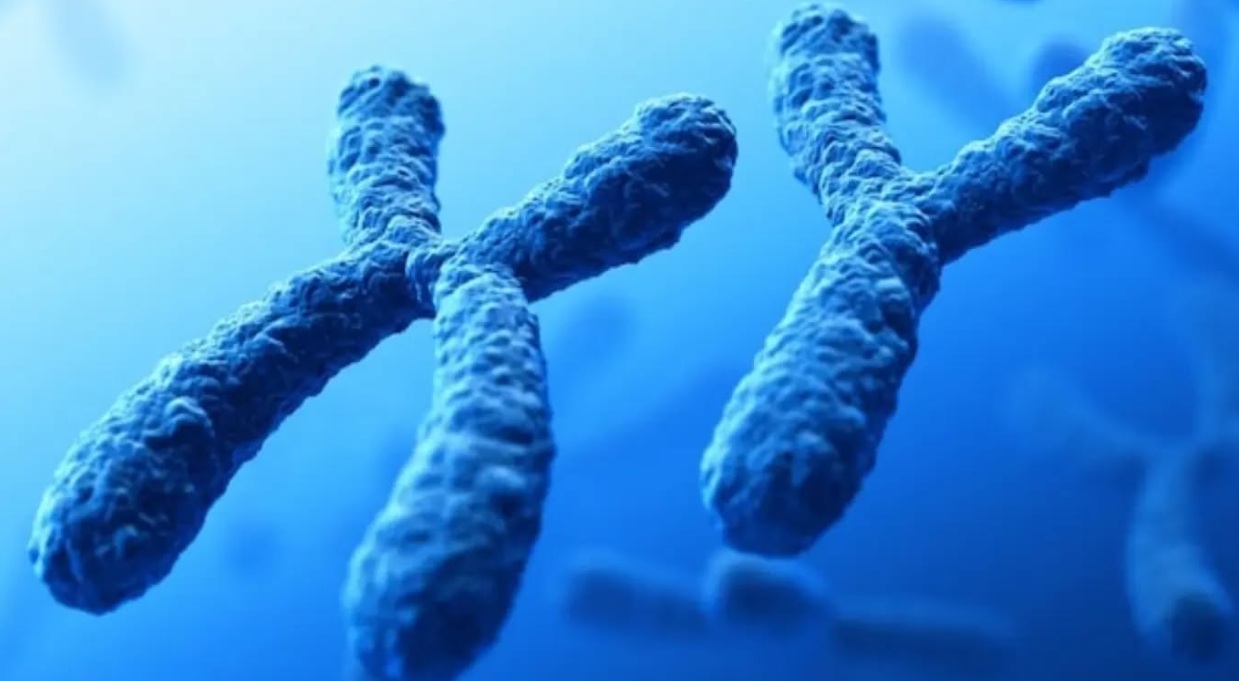
New Delhi, June 21 : For decades, the Y chromosome has been understood as the crucial genetic determinant of male development, typically paired with an X chromosome. However, scientific research increasingly indicates that the Y chromosome is progressively diminishing. In stark contrast to the X chromosome, which houses hundreds of genes, the Y has undergone substantial genetic attrition over millennia. While some researchers project its complete disappearance within approximately 11 million years, compelling evidence suggests the ramifications of this decline are already manifesting in contemporary men, particularly concerning their health and the aging process.
Recent investigations reveal a strong correlation between the gradual depletion of the Y chromosome in blood cells and heightened susceptibility to cardiovascular disease, Alzheimer’s, and specific malignancies in men. This genetic erosion may also compromise immune function and accelerate biological aging. Consequently, researchers are now considering Y chromosome loss a potential biomarker for age-related illnesses. The comprehensive findings of this research have been published in the prestigious journal Cell.
The Gradual Erosion of the Y Chromosome in Men
The Y chromosome is notably diminutive compared to its counterpart, the X chromosome, which boasts roughly 900 genes, while the Y carries a mere 55. Genetic analyses confirm a consistent loss of genes from the Y chromosome over millions of years. Should this trajectory persist, estimates suggest the Y could cease to exist entirely in approximately 11 million years. While this timeframe may seem distant, both animal and human studies offer compelling evidence that the effects are already underway and extend beyond theoretical speculation.
Mosaic Loss of Y (LOY): A Prevalent Phenomenon
Long before the Y chromosome potentially vanishes from the human species, many men are already experiencing its loss within certain cells. Commencing around the age of 50, some bone marrow cells exhibit misplacement of the Y chromosome during cellular division. These Y-deficient cells then proliferate, particularly within the bloodstream. By the age of 80, approximately 40% of men demonstrate a substantial proportion of blood cells lacking the Y chromosome, a condition termed “mosaic loss of Y” (LOY).
A prolonged Swedish study, which monitored over 1,100 elderly men, found that individuals with LOY faced elevated risks of cancer, heart disease, and Alzheimer’s, and on average, experienced a 5.5-year reduction in lifespan compared to those without the condition.
The Critical Role of the Y Chromosome in Immune Function
One of the genes located on the Y chromosome, designated UTY, plays a vital role in regulating the immune system. Its absence can lead to dysfunctional immune cells; some may overproduce scar tissue, while others become less efficacious in combating cancerous cells.
Laboratory experiments with mice deficient in the Y chromosome exhibited accelerated tumor growth and increased cardiac damage. In humans, tumors lacking the Y chromosome, particularly those in the bladder, tend to be more aggressive. Interestingly, these same tumors have demonstrated improved responses to a specific cancer treatment known as checkpoint inhibitors, highlighting the often-unforeseen complexities of biological processes.
Evolutionary Adaptations: Lessons from Rodents
Certain rodent species, such as the Japanese spiny rat and some mole voles, have already undergone complete loss of their Y chromosomes, yet they successfully produce male offspring. In 2022, scientists made a significant discovery: a duplicate DNA segment near the SOX9 gene can assume the function of initiating male development, even in the absence of the typical Y-linked trigger. This finding underscores evolution’s capacity to develop alternative mechanisms. Should the Y chromosome disappear in humans in the distant future, it is plausible that a new system could emerge to fulfill its role.
Mitigating Y Chromosome Loss: Lifestyle Interventions
While halting evolutionary processes is beyond human control, individuals can potentially slow the rate of Y chromosome loss within their own bodies. Factors such as smoking, exposure to air pollution, and contact with toxic chemicals are known to accelerate DNA damage, including the loss of the Y chromosome. Adopting a healthy lifestyle, encompassing smoking cessation, avoidance of environmental toxins, regular exercise, a nutritious diet, and adequate sleep, may contribute to the preservation of more Y-bearing cells.
Furthermore, certain drugs used to treat lung diseases are currently being investigated for their potential to prevent the heart damage associated with Y chromosome loss. As medical diagnostic technologies advance and become more accessible, men may soon have the option of obtaining a “Y-loss score” during routine health examinations, similar to how cholesterol levels are currently monitored.
A Confluence of Evolution and Medical Urgency
The progressive shrinking of the Y chromosome represents a unique intersection of protracted evolutionary change and pressing medical challenges. On one hand, nature appears to possess inherent backup plans for the distant future. Conversely, individual men today are already experiencing the health consequences.
This scenario perfectly illustrates the divergent timelines of evolution and medicine. Evolution prioritizes the perpetuation of genes, not necessarily extending human longevity into the eighties. However, for healthcare professionals and patients, immediate health risks hold paramount importance.
Despite the potentially alarming concept of the Y chromosome’s disappearance, there is no need for undue apprehension. Evolution is inherently adaptable, and medical science is making rapid advancements. For the present, the most practical advice remains straightforward: prioritize a healthy lifestyle, minimize exposure to harmful chemicals, and remain informed about emerging research.
The complete study discussed in this content is published in the journal Cell.





